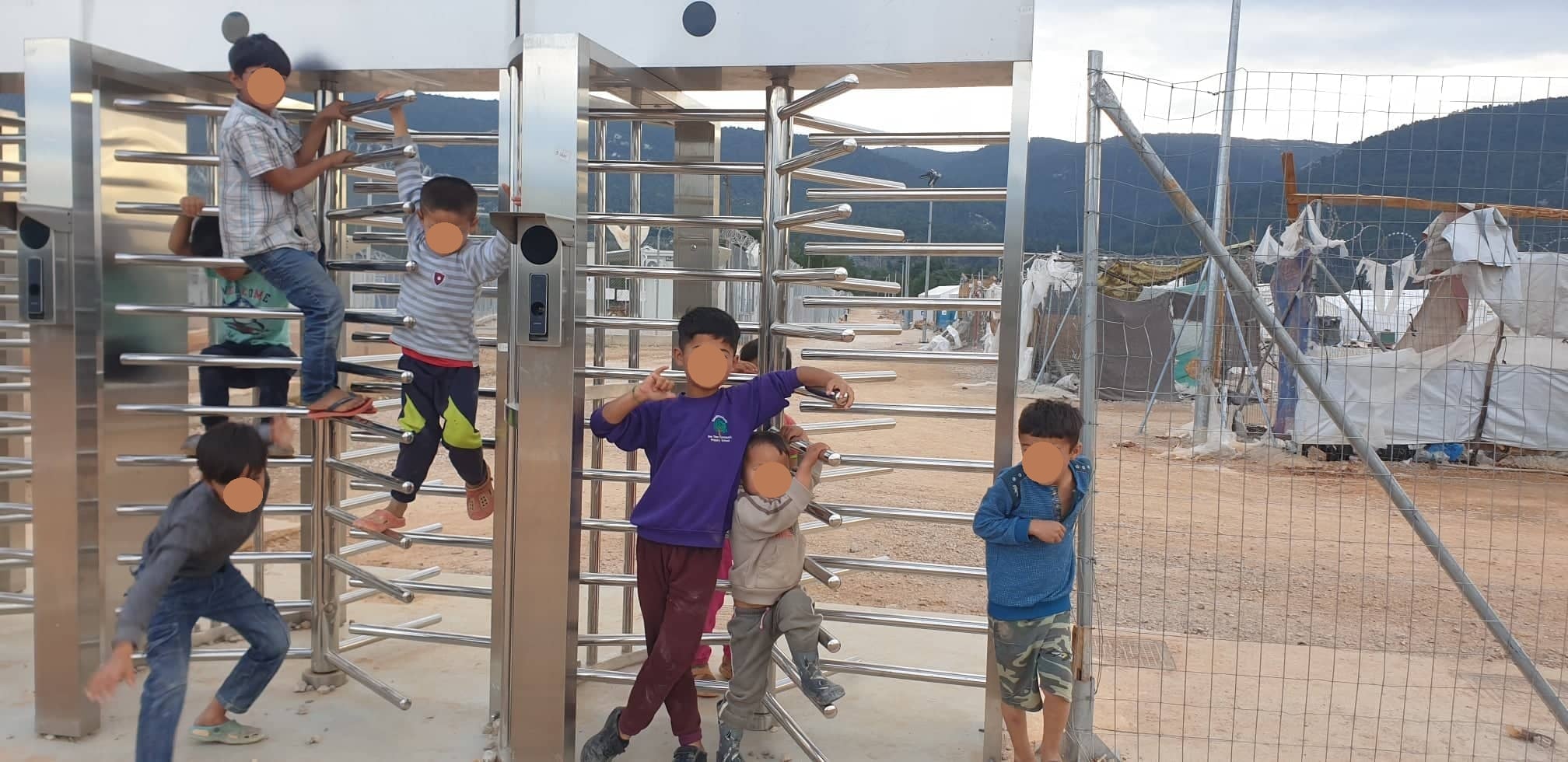Photo: The entrance of the Malakasa Refugee camp under construction. 2021
The brutal reality of refugee camps in Greece has been exposed by the EODY workers’ union, who have issued a damning statement about the conditions faced by asylum seekers. According to the union, the government is turning Reception and Identification Centers into real prisons, complete with double NATO-style military fencing, card and fingerprint entry gates, and surveillance systems. Asylum seekers are being forced to live in these structures, with their freedom severely restricted, even though they have committed no crime.
The union has called for an end to this inhumane treatment, stating that the government and ministry are betraying their commitments to the EU by advancing reactionary plans for refugees. Instead of spending vast amounts of money on building state-of-the-art monstrosities with surveillance and control measures, the government could use the funds to provide doctors, interpreters, caregivers for unaccompanied children, and other necessary specialties. They could also ensure that there is sufficient funding for food and medicine, and invest in mobility and housing programs for vulnerable people in urban centers.
Moreover, the union highlights that workers are being asked to work in different environments than the ones they were hired for. They are expected to work in structures with a vulnerable population, providing their services in a professional capacity, which is simply unacceptable. They are being subjected to a dehumanizing work environment, where asylum seekers are treated like criminals, and their personal data protection is being compromised, putting their health at risk.
The EODY workers’ union is calling on all unions in the field of refugees to join them in their struggle to defend the rights of workers and refugees/immigrants. The union is adamant that the government must put an end to this inhumane treatment and invest in the well-being of refugees, rather than treating them as criminals. This is not a time for walls, security doors, and fingerprints; it is a time for compassion and humanity.
“Saturday, Sunday, Monday, Tuesday…” – It is often noted that one of the defining characteristics of Forugh Farrokhzad’s poetry is her use of simple and concrete language that is easily remembered by her audience. In the documentary “The House Is Black,” which depicts the harsh lives of lepers, Farrokhzad employs ordinary and everyday words to great effect. However, the same commonplace words such as “Tuesday, Wednesday…” are constantly repeated alongside images of lepers wandering aimlessly in front of empty windows, transforming into creatures of intense sadness. This imagery stems from Forough’s belief in the ominous transience of the world: that the world was impregnated by absurdity and gave birth to cruelty.
Living in refugee camps in Greece evokes this same image for me – a continuation of the situation where individuals fleeing from war, poverty, and misery are trapped in purgatory at the borders, victims of policies rooted in oppression. From the undemocratic eastern borders of Iran to the borders of democratic Greece, this absurdity has given birth to cruelty.
The Greek Ministry of Migration and Asylum mostly denying any open access to the camps by others like journalist and had made restrictions on publishing information by NGOs or any workers in the fields. What seems to be the real reason for this blatant obstruction is that the Greek authorities are keen to conceal the inhumane conditions in which migrants are being forced to live.
Rather than acknowledging the appalling living conditions that these migrants are subjected to, Greek authorities have brazenly suggested that these camps create “a sense of security for the residents of the islands and between the migrants.” Such a statement is not only disingenuous but also deeply insulting to those who have had to flee their homes and endure arduous journeys just to reach the supposed safety of these camps.
The documentary “Idomeni” follows the tragic destinies of two Yazidi families fleeing the war and genocide. They try to find safety in another country, in Germany, but Europe’s migration policy has decided otherwise. They find themselves blocked in a temporary camp in Greece outside the village of Idomeni.
So close to new home und unable to move forward, they live in terrible conditions. There is Nadia and Nawaf and their two children, who try to cope with this camp life. Their home was destroyed and many of their friends and relatives are missing or dead in Iraq.
And finally Yasir, whose wife, Khalida, has been a prisoner of ISIS for almost two years and whose youngest son has been killed. With no relatives in the camp, Yasir tries to bring his family together. This is their story.








